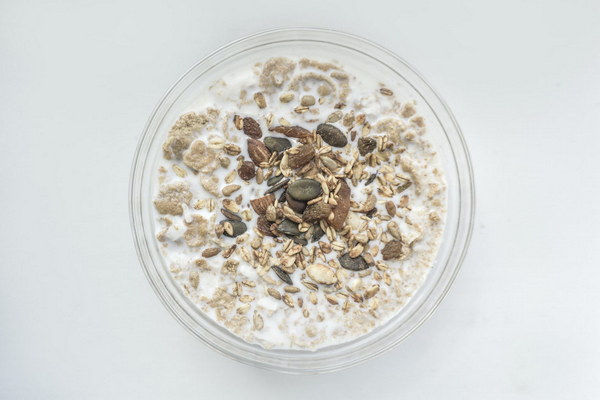Maximizing Fertility A Comprehensive Guide for Dad-to-Be's Wellness Journey
Embarking on the journey to parenthood is an exciting time for couples, but it’s also a critical period for both partners to ensure they are in the best possible health. While the focus often falls on the mother’s fertility, the role of the father cannot be overlooked. Here’s a comprehensive guide to help dad-to-be’s optimize their health for a healthy pregnancy.
Understanding Male Fertility
Male fertility encompasses various factors, including sperm count, motility, and morphology. A healthy lifestyle can significantly impact these aspects, leading to an improved chance of conception. It’s essential to understand that male fertility can be affected by age, lifestyle, and health conditions.
Nutrition: The Foundation of Male Fertility
A balanced diet rich in essential nutrients is vital for maintaining optimal fertility. Here are some key dietary considerations for dad-to-be’s:
1. Zinc: A vital mineral for sperm production and function, zinc can be found in nuts, seeds, legumes, and whole grains.
2. Selenium: This antioxidant helps protect sperm from oxidative stress, and can be found in Brazil nuts, seafood, and meats.
3. Folic Acid: Essential for sperm development, folic acid is found in leafy greens, citrus fruits, and fortified cereals.
4. Omega-3 Fatty Acids: Found in fatty fish, flaxseeds, and walnuts, these acids improve sperm quality and reduce inflammation.
5. Vitamin D: Important for sperm health, vitamin D can be obtained through sunlight exposure or dietary sources like fatty fish and fortified milk.
Exercise: Boosting Fertility Through Physical Activity
Regular exercise can improve fertility by reducing stress, maintaining a healthy weight, and improving blood flow. Aim for at least 150 minutes of moderate aerobic activity or 75 minutes of vigorous activity per week. Engaging in strength training exercises can also help improve overall health and reduce the risk of certain conditions that may affect fertility.
Avoiding Harmful Substances
Toxic substances can have a detrimental effect on male fertility. Here are some substances to avoid:
1. Tobacco: Smoking has been linked to reduced sperm count and motility.
2. Alcohol: Excessive alcohol consumption can decrease fertility and increase the risk of birth defects.
3. Chemicals: Exposure to certain chemicals, such as those found in pesticides, can affect sperm health. Whenever possible, opt for organic produce and use natural cleaning products.
Stress Management

Stress can impact fertility by reducing sperm production and increasing the risk of sperm abnormalities. Practice stress-reducing techniques such as meditation, yoga, or deep-breathing exercises to maintain a calm and relaxed state of mind.
Regular Check-Ups
It’s crucial for men to undergo regular health check-ups, as certain conditions can affect fertility. Consult with a healthcare professional to discuss any concerns or symptoms you may be experiencing.
Seeking Professional Help
If you and your partner have been trying to conceive for over a year without success, it may be time to seek professional help. A fertility specialist can provide a comprehensive evaluation and recommend appropriate treatments.
Conclusion
By focusing on their overall health and well-being, dad-to-be’s can significantly improve their fertility and increase the chances of a successful pregnancy. Embracing a healthy lifestyle, avoiding harmful substances, and seeking professional advice when needed can pave the way for a joyful parenthood journey.









